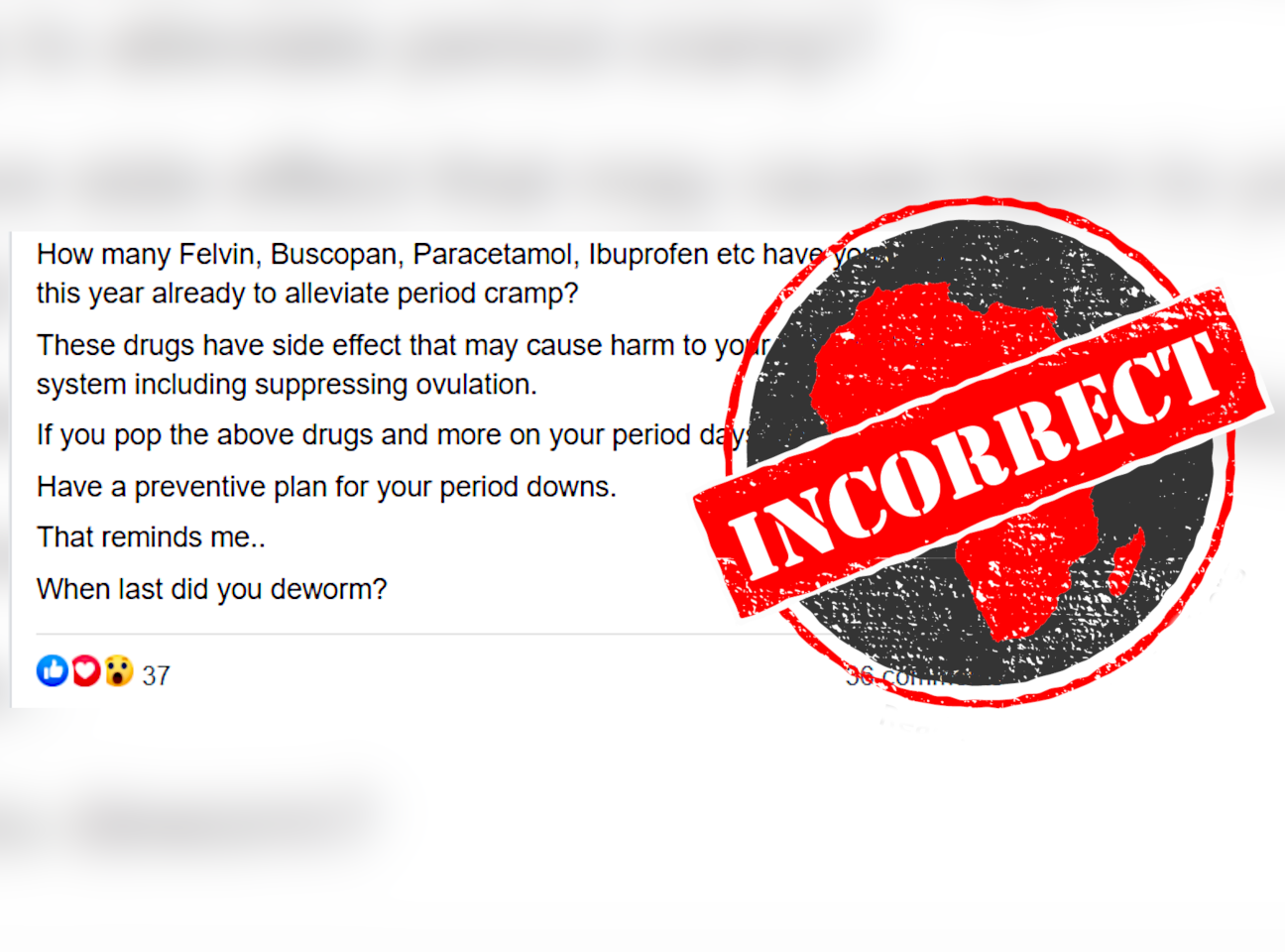An old myth in Nigeria, often shared on WhatsApp, claims deworming medicine cures menstrual cramps.
People have even taken to Facebook to discourage the use of painkillers for period pain.
One post reads: “How many Felvin, Buscopan, Paracetamol, Ibuprofen etc have you taken this year already to alleviate period cramps? These drugs have side effect that may cause harm to your reproductive system including suppressing ovulation. That reminds me … When last did you deworm?”
Is deworming a better solution for period pain than painkillers? And do the painkillers listed suppress ovulation? We took a closer look.

Painkillers don’t suppress ovulation
Period pain – menstrual cramps – is pain in the lower abdomen just before and during women’s menstrual periods. The pain is usually caused by the chemical prostaglandin, which causes the uterus to contract slightly to expel menstrual blood.
Dr Onche Samuel Malyot, a consultant gynaecologist obstetrician with Bee Hess Special Hospital in Lagos, Nigeria, told Africa Check that the painkillers mentioned in the Facebook post are all non-steroidal anti-inflammatory drugs, or NSAIDs, except for paracetamol, also known as acetaminophen.
He said NSAIDs have no effect on ovulation.
According to the German Institute for Quality and Efficiency in Health Care, NSAIDs such as ibuprofen and diclofenac can relieve period pain.
The US-based Mayo Clinic and Cleveland Clinic, both prominent medical research centres, also recommend over the counter pain relievers, like ibuprofen, as best for period pain.
‘Dewormers never shown to treat menstrual pain’
In contrast, deworming medications or anthelmintics target parasitic worms in the body.
Malyot said worms were unlikely to invade the uterus.
“Worms are typically found in the intestine and in the muscle tissue,” he said. “Dewormers have never been shown to treat menstrual pain. I wouldn’t recommend anyone take dewormers for period cramps.”
Kay Anyachor, a community pharmacist in Gwarimpa municipality in Abuja, Nigeria, said that the major deworming drug administered in Africa is albendazole. When used for purposes other than deworming, such as that suggested in the Facebook post, worm medicines can have side effects.
“Albendazole is not an NSAID and does not have anti-inflammatory, analgesic properties. But dewormers are teratogenic, which means they can harm a foetus in the early stages of pregnancy.”
The World Health Organization advises that anthelmintic medicines like dewormers must not be given to pregnant women during the first three months of pregnancy. Deworming medication will not relieve menstrual cramps, but can have serious side-effects.
Republish our content for free
For publishers: what to do if your post is rated false
A fact-checker has rated your Facebook or Instagram post as “false”, “altered”, “partly false” or “missing context”. This could have serious consequences. What do you do?
Click on our guide for the steps you should follow.
Publishers guideAfrica Check teams up with Facebook
Africa Check is a partner in Meta's third-party fact-checking programme to help stop the spread of false information on social media.
The content we rate as “false” will be downgraded on Facebook and Instagram. This means fewer people will see it.
You can also help identify false information on Facebook. This guide explains how.



Add new comment